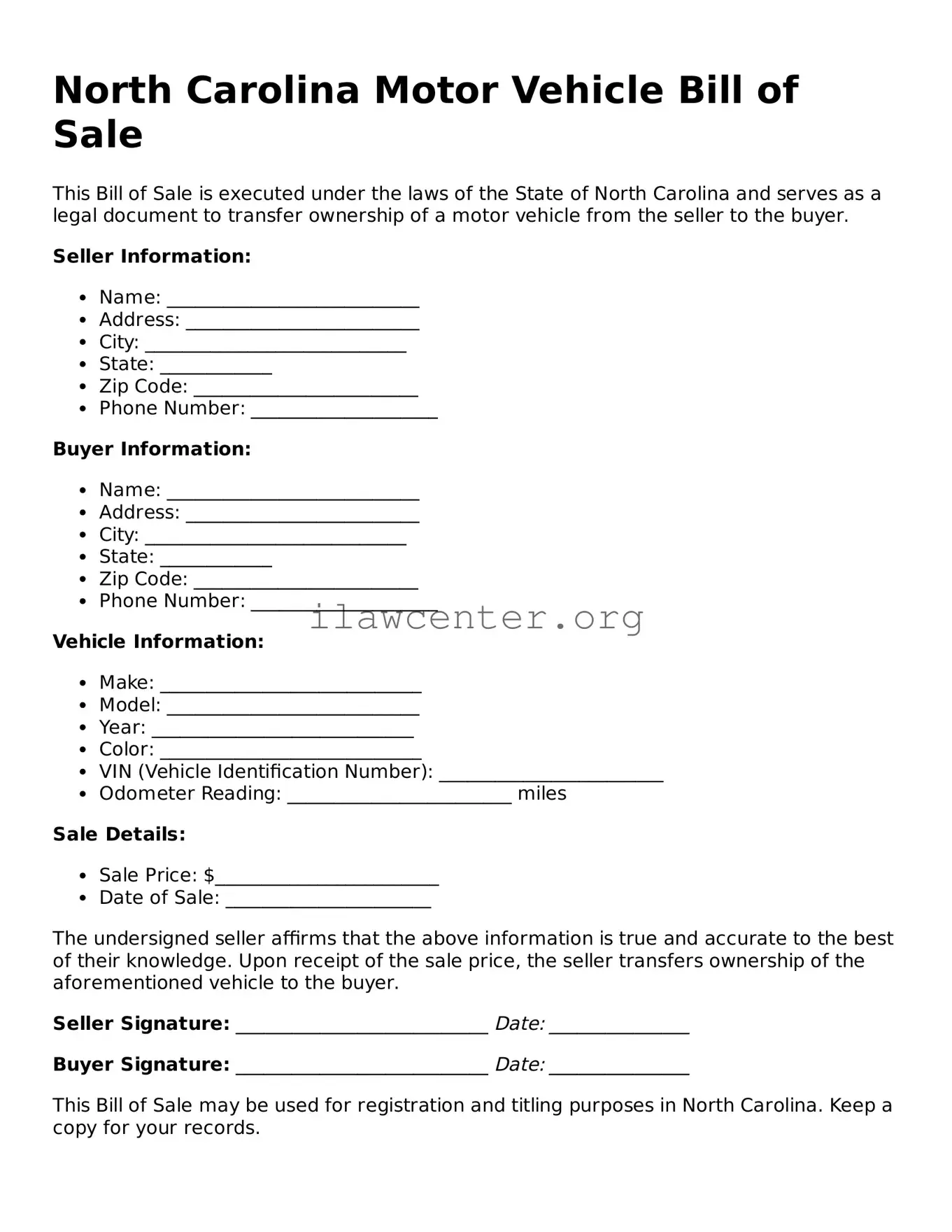Instructions on Utilizing North Carolina Motor Vehicle Bill of Sale
After obtaining and reviewing the North Carolina Motor Vehicle Bill of Sale form, you'll be ready to complete it. The process is straightforward, and following the steps ensures all necessary information is present. Double-check your entries to avoid mistakes that might cause delays or issues later on.
- Begin by entering the date of the sale at the top of the form.
- Provide the seller's name, address, and phone number. Ensure that all details are accurate.
- Next, fill in the buyer's name, address, and phone number.
- Include the vehicle information, such as the make, model, year, vehicle identification number (VIN), and odometer reading at the time of sale.
- Specify the sale price of the vehicle clearly.
- If applicable, indicate any trade-in details. This step is important if a vehicle was exchanged as part of the sale.
- Both the buyer and seller must sign and date the form at the bottom. Signatures confirm the transaction.
Once the form is filled out correctly, both parties should keep a copy for their records. It's wise to have documentation of the sale for future reference, especially for title transfers and registration processes.
